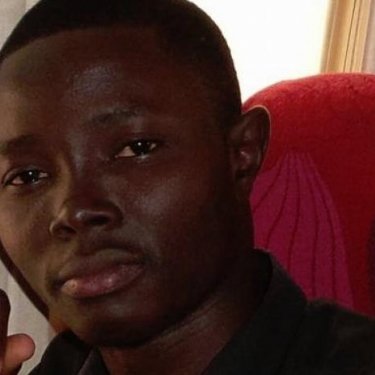Benin urged to implement findings of Working Group on Arbitrary Detention

Reporters Without Borders (RSF) calls on Benin’s government to implement the conclusions of the United Nations Working Group on Arbitrary Detention by overturning journalist Ignace Sossou’s conviction and bringing its Digital Law into compliance with Benin’s obligations as regards freedom of expression.
During its 88th session at the end of August, the Working Group said it had concluded that Sossou’s detention from December 2019 to June 2020 was arbitrary.
A reporter for Benin Web TV, Sossou was given an 18-month jail sentence, later reduced to six months on appeal, on a charge of “harassment by means of electronic communications” because he tweeted statements that a prosecutor made at a workshop on disinformation that both Sossou and the prosecutor attended.
The Working Group said Sossou did not get a fair trial, and that his conviction had no legal basis and was the result of his use of the freedom of expression. It was hard to justify how his detention could be “proportionate and necessary” if he was simply accused of defamation, the Working Group said in its conclusions.
Noting that Benin’s government did not respond to its requests, the Working Group also pointed out that the prosecutor’s statements during the workshop were reported accurately by Sossou. Finally, it said the Digital Law under which he was convicted had many vaguely-worded provisions that, combined with its heavy criminal penalties, were liable to be used to penalize the peaceful exercise of human rights.
“We call on Benin’s government to implement the Working Group’s conclusions by granting this journalist the right to obtain reparation, in particular, in the form of an indemnification in accordance with international law,” said Assane Diagne, the director of RSF’s Africa desk.
“We urge the Beninese authorities to ensure that a thorough and independent investigation is conducted into the circumstances in which this journalist was arbitrarily detained and to take appropriate action against those responsible for violating his rights. We also call for the Digital Law to be brought into line with international law, so that it can no longer be used to arrest, convict and arbitrarily detain a journalist. And finally we ask the supreme court to invalidate the judgment and sentences pronounced at the end of his trial and appeal.”
The Working Group’s conclusions confirmed RSF’s findings in this case. In a video comparing the prosecutor’s statements with Sossou’s tweets, RSF demonstrated Sossou’s innocence by showing that he had reproduced the prosecutor’s statements word for word – statements that as a journalist he deemed to be in the public interest to report.
The outcry about Sossou’s arbitrary detention extended far beyond Benin’s borders. More than 120 media outlets and journalists in West Africa published an unprecedented joint op-ed on 13 March calling for Sossou’s release.
Benin fell 17 places in RSF’s 2020 World Press Freedom Index – the third biggest fall. It is now ranked 113th out of 180 countries.



